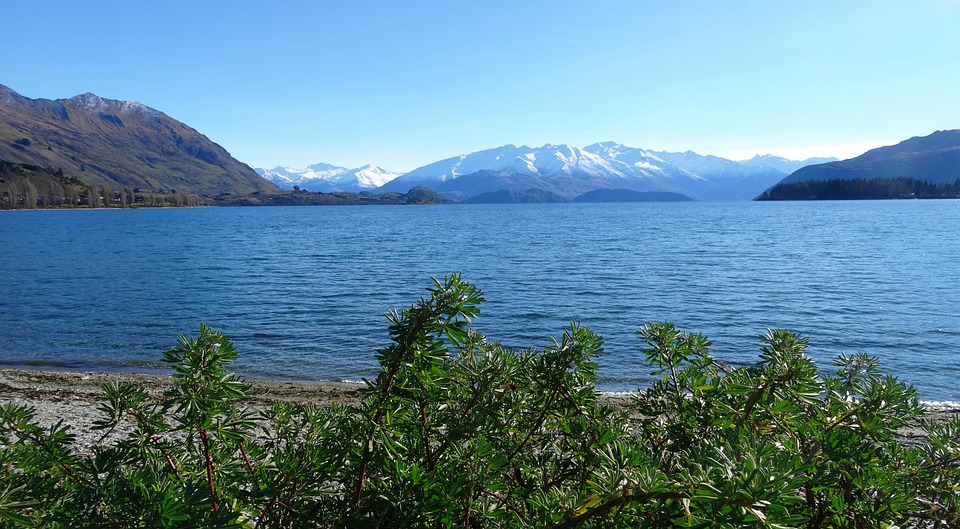The United Nations Coordination Office, Ochhahas published $ 10 million in response to the urgent need of food, water, shelters and other rescue arrangements after earthquakes and devastating replicas this week in Afghanistan.
“This is the last crisis to expose the cost of reducing resources on vital humanitarian work,” the head of the United Nations said on Friday, Tom Fletcher, in a statement.
He stressed that more funding is necessary to help the thousands of Afghans who have lost their livelihoods in the disaster. The UN Emergency fund Now accepts donations to help Afghanistan.
Meanwhile, the United Nations Agency for Refugees, HcrSent emergency aid worth $ 4.5 million to help more than 5,000 households in Kunar and Jalalabad, UN spokesman Stéphane Dujarric said.
Risk pregnancies
The United Nations Sexual and Reproductive Health Agency, Unfpaestimates that more than 11,600 pregnant women were affected by the earthquake. According to the UNFPA, Afghanistan already has one of the highest maternal mortality rates in the Asia-Pacific region.
“For pregnant women, a natural disaster can transform an already difficult period into a deadly crisis,” said Kwabena Asante-Ntern, the UNFPA representative in Afghanistan.
“We are in the field, offering essential care to ensure safe delivery and prevent new losses of life,” she added.
In addition to deploying an emergency response, the UNFPA continues to operate around twenty health clinics in the region.
Details on the United Nations call for survivors of the earthquake can be Found here.
The crisis of sexual violence is deepened in Haiti
Sexist violence (GBV) has reached alarming levels in Haiti while criminal gangs tighten their grip on the Caribbean nation, with more than 6,200 incidents reported Between January and July by service providers.
The rapes represented almost half of the cases, the armed groups performing 62% of them, according to the data collected by the Office of the Coordination of the UN, OCHA.
While mainly affecting adult women, “one in seven survivors is a child, a girl under the age of 18,” said UN spokesperson said Stéphane DujarricFriday, information journalists in New York.
More than half of the incidents involved in-house people internally, but only one in four survivors accessed care in the 72-hour crucial window, he added.
Deep stigma
The absence of access reflects the longtime stigma associated with GBV in Haiti, the country’s insecurity, low reference systems and, mainly, the lack of health facilities in the country.
To remedy this, the United Nations agencies and their humanitarian partners have helped nearly 20,000 people, Ochha reported in an update on Friday. This includes medical care, psychological support, legal aid, dignity kits, emergency refuge and cases management.
The problems persist because the services are mainly concentrated in the country’s capital, Port-au-Prince and in the Artibonite department, while other regions, including the center and the Grand South, systematically receive less support.
“Of the 19 million dollars necessary for prevention and response to sexist violence in Haiti, we only received 18%,” said Dujarric.
Which adds cancer drugs and revolutionary diabetes to the essential list
Marking an important step in improving fair access to vital health products worldwide, the World Health Organization (WHO)) updated Its lists of essential medication models to include new treatments for cancer, diabetes and obesity.
THE Revised listsPublished Friday, guides supply and coverage decisions in more than 150 countries.
They now include 523 adult drugs and 374 for children, after adding 20 new adult treatments – 15 for young people. Other additions cover cystic fibrosis, psoriasis, hemophilia and blood disorders.
“The new editions of essential drugs list an important step towards expanding access to new drugs with proven clinical advantages and high potential for the global impact of public health,” said Dr. Yukiko Nakatani, Deputy Director General for Health Systems, Access and Data.
Cancer, a global priority
Cancer remains a global priority and is still responsible for nearly 10 million deaths per year. WHO has added immune control point inhibitors – powerful therapies that help the immune system target cancer cells, including Pembrolizumab, Atzolizumab and Cemiplimab, for certain metastatic cancers, citing evidence that they can extend survival.
Diabetes and obesity, affecting more than 800 million and 1 billion people worldwide, are now recognized as urgent global threats.
To resolve it, which added a group of drugs to help not only lower blood sugar but also to support patients with type 2 diabetes.
The United Nations Health Agency has stressed that high prices remain an obstacle and have urged countries to prioritize patients in need, to promote generic competition and to integrate access to primary care.
Pakistan monsoon communities with flooding are faced with more misery: WMO
The monsoon floods in northern Pakistan had an impact on 1.5 million people and killed nearly 900 people. Hundreds of thousands need help after torrential rains have sparked flash flowers, landslides and destruction.
The UN Secretary General expressed his sadness on the level of emergency, while United Nations agencies and partners work in close collaboration with Pakistan to identify needs and fill the gaps in the response in the event of a disaster.
According to the World Meteorological Organization (Wmo), there is no immediate respite in sight.
Associated with this, heavy rains could generate sudden floods in the rivers of cashmere, Islamabad, Rabindi, northeast of Punjab and Swat, and cause urban floods that move slow but devastating in the lower areas, said WMO.
Glacier effect
The United Nations agency noted that high temperatures causing a glacial merger had aggravated the situation.
Earlier this summer, Pakistani climate experts issued repeated warnings on glacial lakes explosions.
The most recent alert of August 30 warned that temperatures were much higher than normal, potentially accelerating the amount of glacier water downstream.
Originally published at Almouwatin.com








